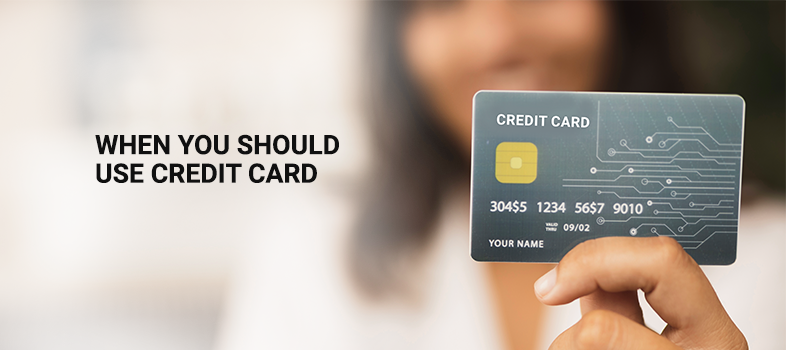Credit Card is a great tool if you know how to manage it smartly. It is much easier to lose credit than gain it and many of us don’t realize how easy it is to ruin the credit. Making unplanned decisions at young age can cost you high later, so it’s important to make yourself clear with your concepts and tools on responsible credit practices as early as possible.
Many personal finance experts discourage to use credit cards, as we might fall in a debt trap. However, if we can use the plastic responsibly, we are much better paying with a credit card than with a debit card and keeping cash transactions to a minimum.
Let’s see how using a credit card can help you reap the benefits –
One-Time Bonuses OR Joining Bonuses – When getting a new credit card, there is nothing like getting an initial bonus opportunity with a good credit amount. Many cards provide bonus reward points or miles that can be redeemed for travel, gifts cards, merchandise and statement credits.
Cash Back – There are cards that offers you cash rewards on your spending. When you do a transaction, using a cash back rewards card you earn a cash credit for some percentage of your purchase.
Rewards Points – In general, credit card allow cardholders to earn rewards points on every Rupee they spend. Many cards provide points for certain categories of spending like restaurants, groceries or fuel. When you earn certain threshold, points can be redeemed for travel, gift cards from retailers and restaurants, or for merchandise items through the credit card company’s online rewards portal. Your credit card rewards options are almost endless. You can also opt for a co-branded card offered in partnership with a hotel chain, clothing retailer. Always choose your card that best fits with your spending patterns.
Frequent Flyer Miles – Many cards are providing frequent flyer programs partnering with some airline company. These programs encourage airline customers to accumulate points which may be redeemed for air travel or other rewards.
Safety – Paying with a credit card is also safer and protects you from losses. When your credit card is used fraudulently, you aren’t out any money—you just notify your credit card company of the fraud and don’t pay for the transactions you didn’t make while the credit card company resolves the matter. Credit card networks like Visa and Mastercard provide zero liability coverage for unauthorized purchases to encourage usage of their cards over cash.
Grace Period – When you make a debit card purchase, your money is going out instantly. When you make a credit card purchase, your money remains in your savings account until you pay your credit card bill. Hanging on to your funds for this extra time can gain you some interest on the amount.
Insurance – Most credit cards offer you value added services that people don’t even realize they have, such as travel insurance, health insurance, accident coverage and product extended warranties.
Universal Acceptance – Certain purchases are difficult to make with a debit card as few merchants like rental car companies or hotels need to block out a certain amount of the available credit line to protect themselves from any potential charges they didn’t anticipate.
Building Credit – If you want to build your credit score using a credit card responsibly will help because credit card companies report your payment activity to the credit bureaus. Eventually, it will build your credit history and make you qualify for unsecured cards or larger loans.
Now lets’ see few reasons when paying with credit card isn’t better, and they have to do with you and your spending habits –
- You can’t pay your credit card outstanding balance in full and on time.
- You tend to spend more than you can afford
- Assuming you have a credit card and your credit limit is little low as per your expectations. In this kind of scenario, you might exceed your credit limit that will result in high interest charges and can also hamper your credit score.
Credit cards are best enjoyed by disciplined people, who can remain consistent of their ability to pay their monthly bill (preferably in full) on or before the due date.

